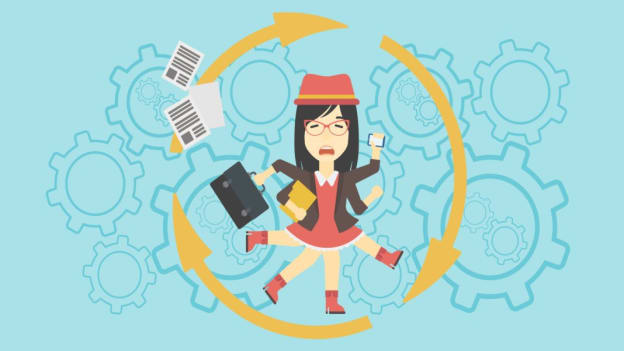Work From Home: Blessing or burden on Mental Health

Work from Home has had mixed Reactions.
Many people felt a sense of losing work life balance, others remained productive and learned new skills.
Companies and organizations have survived. Remote working had almost become a global norm. There are pros and cons. It is a boom for some yet bane for others.
Basically humans are social animals by nature, man cannot live alone or work alone productively.
We have seen an impact on many working adults. Rapid changes affect mental health and well-being, throwing people off balance many times. Thus burnout has had negative effects and work from home has been a bane for specific groups.
Discomforts
For adults there was insecurity of social isolation, employment and WFH burnout. There were fears that remote working could slow promotions. Besides this, the virus trauma had and continues to haunt many.
Many parents have found it challenging to WFH, especially those with young children around. Younger Children seek their parents’ attention and are often unaware of the environment needed in a home that has been converted into a partial office space.
Peer affiliation is very high and so is the adrenal rush in the Teens. It is important to socialize and express themselves. Teenagers worry about their friendships. These concerns affect their focus. Either they get moody and aggressive. Another concern for Parents who have to focus on their work while dealing with their Teen kids.
Women have had a tougher time managing home and work. They have felt more anxious, stressed and depressed because they want to do the best in balancing their careers and as well as their families. There have been many cases of domestic abuse. People with pre-existing Mental disorders have suffered more.
On the economic front many have suffered business losses with low productivity. WFH did not enable them to go out to manage their business. So they suffered losses. Some specific field work cannot flourish without physical interaction. This was depressing as it depleted the resources. WFH was not an option for them.
Virtual Mode and Psychological implications
Spending hours at home in virtual mode and lack of physical interaction with Team members affects motivation levels. Extrinsic motivation comes from a great environment at work place and team work interaction. Teachers have faced challenges using online platforms and Network Issues . This raised stress levels.
Many Adults have reported low motivation levels, boredom, monotony and Network issues causing Frustration. Working on the computer all day affects concentration and retention which we also call “cognitive exhaustion.” Further anxiety and irritation adds to it.
Many men felt a lack of motivation, missed their tea breaks and interaction with colleagues. They felt there was distraction at home and not a very conducive working environment.
Being cooped up in the house led many households to displace their frustration on one another. Online working platforms promote sedentary lifestyles, this is not conducive to physical health. Lifestyle diseases cause concern and anxiety.
Online education improved for higher education, but in schools we have had dropout rates especially in remote areas due to difficulties in affordability and accessibility of Technology.
This has disappointed many aspiring Parents and not understanding how to engage their Children, has led to children becoming Vagabonds. Their Family and Parents feel disillusioned and helpless.
The Boon That Was Felt
On the other hand some perceive it as a boon. They were comfortable working with independent schedules. There were opportunities for family bonding. Many did not have time for family for a long time.
Opportunity was taken to enhance their skills, do short courses and attend enrichment programs. Mental health discourses followed by physical fitness schedules became quite in demand.
Taking breaks and working in the lap of nature from remote areas was truly enjoyed by many. People saved on time, travel and accommodation, E-learning tools enabled learning designers to make content interactive and enjoyable.
Being home and WFH ensured a feeling of safety as well as a safe productive environment. One could attend to personal life needs and health care. Home requirements were better attended to, more so by women.
Stress of commuting was less. “Traffic Snarls” were no more a cause of anxiety, frustration and time consuming. So time saved in a way is energy and mental health reserved.
It was an advantage for many living in far off places having less opportunities, yet talented for jobs. They could work remotely and save on rent plus the high cost of living in the City. Inclusivity had an advantage.
Professional wardrobes would cost a lot, now that money was saved.
Eating healthier and recovering from an illness was easier with family around.
WFH a blessing or Burden?
To decide as to whether it has been a boon or bane is difficult.
A lot depends on the Circumstances, Designation, nature of work, family environment, productivity, psychological implications and impact.
We are still discovering productive solutions for employers, employees and our students. .Work From Home was a new concept, who knows in future. Only time can tell.
However we are psychologically adjusted to our pre- covid routines for years and did not face many Challenges. The Challenges faced with Work From Home have definitely reflected on some aspects of Mental Health.















